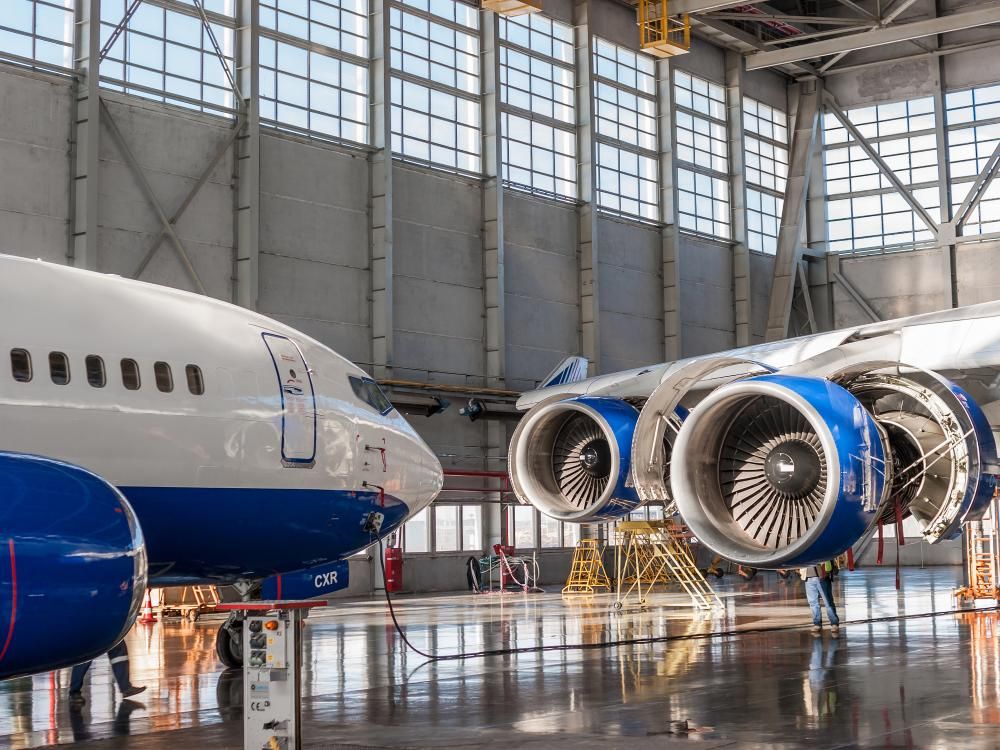
Automotive ERP: key functionality, integrations & software options
April 22, 2025
- Home
- ERP services
- Automotive

Head of ERP Center of Excellence
Having solid expertise in ERP software consulting and development, Itransition implements and upgrades ERP solutions to help automotive companies improve their operational efficiency, enhance product quality, reduce costs, and increase profitability.
Table of contents
About Itransition
10+ years in ERP services
50+ completed projects of different scales across industries
Hands-on expertise in delivering custom, platform-based, and hybrid ERP solutions
Strategic partnership with Odoo, Microsoft, and NetSuite
Our automotive ERP expertise in action

2x
faster work order management
ERP system for a repair and maintenance service company
Our team implemented an Odoo-based ERP solution to help the customer reduce the time for purchase order approval, automate manual tasks, and accelerate work order management.

80%
of manual tasks automated
An Odoo-based fleet management system
Itransition built an ERP system that allowed the customer to reduce operational expenses twofold and increase client satisfaction due to operations transparency.
Need to digitalize and streamline core business processes?
Essential features for automotive ERP software
Automotive ERP software is built with different functional modules. To help bring qualitative changes in business, our automotive software developers tailor the functionality of each particular ERP automotive solution to the requirements and desired capabilities of a particular company.
Customer order management
- Automated order creation and approval
- Multichannel order aggregation
- Order status tracking
- Order pick, pack, and ship planning and scheduling
- Order issue tracking
- Order refund/return/exchange processing
Procurement management
- Procurement planning
- Automatic purchase order creation
- Invoice matching and routing
- Spend tracking
Supplier management
- Getting an overview of suppliers’ KPIs
- Assessing and identifying best-performing suppliers
- Tracking suppliers’ contracts
- Monitoring the financial health of suppliers
Supply chain & inventory management
- Tracking inventory of raw materials, components, and finished goods across the supply chain, between multiple warehouses and production lines or facilities
- Getting an overview of warehouse and logistics operations
- Receiving automated alerts and notifications in case of disruptions
- Leveraging analytics capabilities for planning inventory stock levels, inventory allocation, labor demand, shipment frequency and routes
Production management
- Bill of materials management
- Material requirements planning (MRP)
- Production planning
- Master production scheduling
- Product lifecycle management
- Quality control monitoring
Field service management
- Automatic work order task creation, assignments and scheduling
- Monitoring work order progress
- Getting automated notifications and alerts (new tasks, change requests, looming deadlines)
- Inventory management automation
- Field workers' performance monitoring and assessment
- Invoicing and payments management automation
- Budgeting and job costing automation
- Mobile capabilities support
Financial management & accounting
- Financial planning and budgeting
- Customer invoicing
- Financial statements generation
- Revenue management
- Expenses management
- Tax, financial risk and compliance management
Human resources management
- Storing employee data in a central database
- Automating payroll, time, and attendance management
- Tasks and activities management
- Employee performance evaluation
- Recruitment and onboarding automation
- Employee health and safety monitoring
- Employee training management
- Competence management
- Corporate policies management
Document management
- A centralized database of all corporate documents (contracts, plans, policies, etc.)
- Document indexing
- Document search
- Versioning
- Template-based document generation
- Access control management
- Audit trail
- File locking
Reporting & analytics
- KPIs and performance metrics
- Automated data management (data integration, processing, quality management, storage)
- Support for various analytics types (descriptive, diagnostic, predictive, and prescriptive)
- Real-time analytics
- Scheduled and ad-hoc reporting
- Custom reports and dashboards
- Self-service analytics querying
- Embedded reporting
- Mobile reporting
Key integrations for automotive ERP
To ensure accessibility, reliability, and accuracy of information across the organization with no duplication of effort and manual data entry, we set up integrations between automotive ERP systems and other corporate systems via APIs, third-party solutions, custom code, or a middle layer. Among the most common integrations are:
to deliver all-round customer-related data across departments for customer service improvement, marketing campaign automation, and enhanced customer satisfaction and experience.
Human capital management software
to streamline workforce management in alignment with the company’s processes by optimizing staff schedules, identifying skill gaps, refining recruitment activities, and devising performance management/employee engagement practices, etc.
Manufacturing execution system
to combine customer, sales, order processing, finance, and purchasing data with production scheduling, machine throughput, quality management, and other production process data. This integration enables agile manufacturing and helps to quickly orchestrate work orders, as well as fine-tune production processes in response to the demand.
Electronic Data Interchange software
to automate communication via a streamlined real-time data exchange between vendors and customers.
Enterprise asset management software
to allocate fixed assets according to the set work order priorities, discover how asset management practices influence corporate financials, and plan asset procurement and disposal for asset-intensive companies using complex equipment across multiple locations.
Business intelligence software
to combine ERP data with other corporate data sources and get access to advanced analytics instruments, such as predictive analytics, forecasting, and what-if scenario modeling.
Top ERP software systems for the automotive industry
Key features
- Fleet management
- Inventory management
- Invoicing
- Purchase management
- Sales management
- Manufacturing management
- Production quality management
- Warehouse management
- Repairs management
- Human resources management
- Project planning and controlling
- Procurement and subcontractor management
- Contact management
- Accounting and finance
- CRM and estimation
- Equipment and fleet management
Best for
- Small companies
- Mid-sized companies
Downsides
- Challenging to scale and maintain
Oracle Netsuite
Key features
- Finance management and accounting
- Service and marketing automation
- Human resource management
- Billing
- Asset management
- CRM
- Sales order management
- Opportunity management
- Planning and budgeting
- Revenue recognition
- Financial analytics
- Reporting
- Field service management
Best for
- Companies of all sizes
Downsides
- Price hikes in the long run
Microsoft Dynamics 365 Business Central
Key features
- Financial management
- Reporting and analytics
- HR
- Sales and marketing activities management
- Order processing
- Production process management
- Purchase and inventory management
- Project management
- Service management
Best for
- Small companies
- Medium-sized companies
Downsides
- Integrations with third-party software is complicated and requires development expertise
Microsoft Dynamics 365 Finance & Operations
Key features
- Asset and inventory management
- Production management and control
- Field service management
- Cost management
- Demand planning
- Financial management
- Accounting and budgeting
- Sales and marketing
- Transportation management
- Human resource management with payroll
Best for
- Midsize businesses
- Large businesses
Downsides
- Hard to choose a professional implementation partner due to the overall system’s complexity
Acumatica
Key features
- Bill of materials and routing
- Production management
- Material requirements planning
- Advanced planning and scheduling
- Manufacturing management
- Product configurator
- Inventory management
- Sales order management
- Purchase order management
- Financial management
- Project accounting
- Customer management
- Service management
Best for
- Small companies
- Mid-sized companies
Downsides
- A steep learning curve
- Complicated pricing
Epicor
Key features
- Inventory management
- Product configurator
- Supply chain management
- Manufacturing management
- Retail management
- Financial management and accounting
- Planning and scheduling
- Special ordering
- Business analytics and intelligence
- Multiple deployment options
Best for
- Small organization
- Mid-sized organizations
Downsides
- A still emerging reseller network
- Complex implementation and customization
Plex
Key features
- Product quality planning
- Production part approval process
- Failure mode and effects analysis
- Measurement system analysis
- Material management
- Logistics evaluation
- Industry compliance
- Electronic data interchange (EDI) support
- Lean manufacturing support
- Manufacturing intelligence
- Enterprise accounting and consolidation
- Financial management
- Human capital management
- Suppliers and purchasing management
Best for
- Mid-sized companies
Downsides
- May require third-party integrations for global localization capabilities
Infor CloudSuite
Key features
- Regulatory compliance
- Product control
- EDI support
- Billing and costing
- Financial and accounting
- CRM and customer service
- Multi-site, multi-logistics inventory planning
- End-to-end project management
- Supply chain management
- Field service
Best for
- Companies of all sizes
Downsides
- Challenging to choose and piece together solutions to meet your needs
- Costs of the solution
ERP software selection: factors to consider
To narrow down the options and create a shortlist of ERP providers, we consider the following high-level evaluation criteria:
Prioritized functional requirements
Deployment model
Flexibility
Scalability
Simplicity
Integration
Ease of use
Industry focus
Itransition’s ERP services
ERP consulting
Itransition provides advisory support and implementation assistance to automotive companies, helping ensure the success of their ERP implementation project:
- Analysis of business needs and technology environment
- ERP strategy creation and roadmapping
- ERP solution architecture design
- ERP implementation support
- ERP software selection
ERP implementation
Our end-to-end implementation services can include all or some of the following activities:
- ERP solution advisory
- ERP integration
- Custom ERP development
- ERP migration
- ERP customization
- ERP support and maintenance
Automotive ERP implementation roadmap we follow
1
Business analysis
2
Design & tech selection
3
Project planning
The next step is planning the ERP implementation by outlining project timeframes, key phases, deliverables, resources, change management and risk management plans, and budget.
4
Implementation
5
Quality assurance
6
Deployment & handover
7
Post-launch support
Business impact of automotive ERP solutions
Production cost reduction
ERP enables the implementation of lean manufacturing and supply chains, reducing production costs. The ERP solution optimizes resources, removes costly operational redundancies, improves lead times, and reduces waste, helping achieve better production sustainability.
Inventory optimization
An automotive ERP system synchronizes inventory with production requirements and customer demand to avoid excess inventory or inventory stock-outs. It helps to eliminate downtime, high holding costs, manufacturing process disruptions, or customer resentment.
Improved data access & analytics
An ERP database consolidates data across various departments, streamlining information flow and how it is shared within the company. It boosts collaboration, ensures secure data access, facilitates analytics and reporting, and enables data-driven decision-making.
Task automation
Enterprise resource planning automates routine activities and data management for expense tracking, inventory control, payroll calculations, financial planning, and forecasting.
Simplified compliance
ERP enables complete traceability through the value chain and automates reporting. Simplified submission of reports to the relevant regulatory bodies facilitates compliance with government regulations and automotive and manufacturing industry standards.
Better quality control
ERP grants access to real-time production and process monitoring data to provide a 360-degree view of the shop floor. It helps identify occurring issues and resolve them on time to ensure high-quality standards and increase the safety and durability of the manufactured vehicles.
Jumpstart your ERP project with professional ERP services
Challenges in implementing automotive ERP
Resistance to change
Resistance to change
Even if employees seem excited about the upcoming changes, a new software interface, redefined business operations, new job roles and responsibilities can cause fear, resistance to change, and sabotaging. To mitigate change management risks, we advise you to clearly communicate ERP benefits to employees, keep them informed about the implementation process, involve employees in ERP testing, as well as create comprehensive training programs and timely address arising user issues.
Platform customization vs custom ERP
Platform customization vs custom ERP
Choosing an ERP system that fully covers both your common operations and unique workflows can be rather challenging. To select the right ERP solution without regrets, map your ERP requirements with the capabilities of out-of-the-box ERP solutions available on the market. Opt for a ready-made ERP if it covers more than 70% of your solution scope, with the remaining 30% addressed through customization. Otherwise, custom ERP development can be a more cost-efficient choice.
Total cost of ownership
Total cost of ownership
ERP implementation implies some hidden costs that are hard to anticipate. To minimize your project risks, we recommend factoring in such indirect expenses as the cost of professional ERP consultants’ work, new hires for the IT department, or outsourcing a third-party vendor for regular maintenance, software updates, and security patching.
Data security & data quality issues
Data security & data quality issues
Consolidation of corporate-wide information in a unified data storage poses certain risks connected to data quality and data security. To balance data accessibility and safety without compromising data consistency and credibility, we recommend introducing robust data governance and security practices, like implementing strict access controls, data encryption, regular data quality audits, continuous monitoring, and regular training programs for employees on data handling and security best practices.

Case study
A furniture manufacturing software suite
Read the story behind Itransition’s 5-year collaboration with a leading UK furniture manufacturer on web, mobile and VR solutions.

Case study
ERP system maintenance for LISI Aerospace
Learn how Itransition delivered ERP system maintenance for LISI Aerospace to enhance productivity and reduce support costs.

Insights
Odoo for end-to-end manufacturing process automation
Find out how Odoo Manufacturing supports essential processes in manufacturing while keeping IT infrastructures lean.

Case study
Odoo telecom technology consulting
Learn how Itransition conducted a project discovery for a US telecom company and delivered a comprehensive onsite Odoo demonstration.
More about ERP services
Services
Platforms
Industries